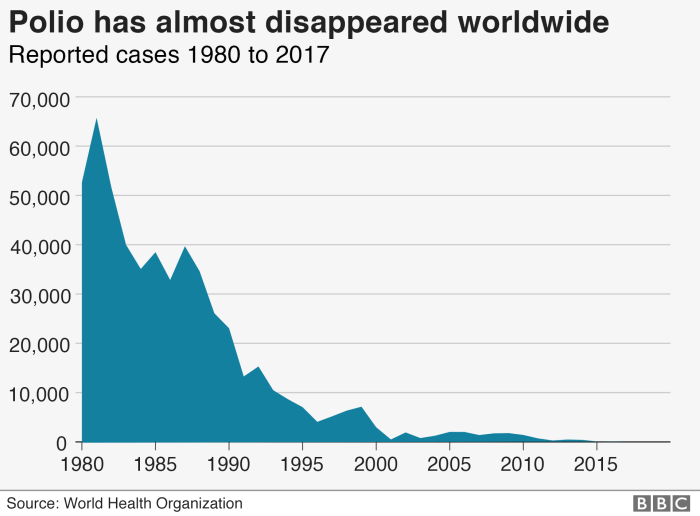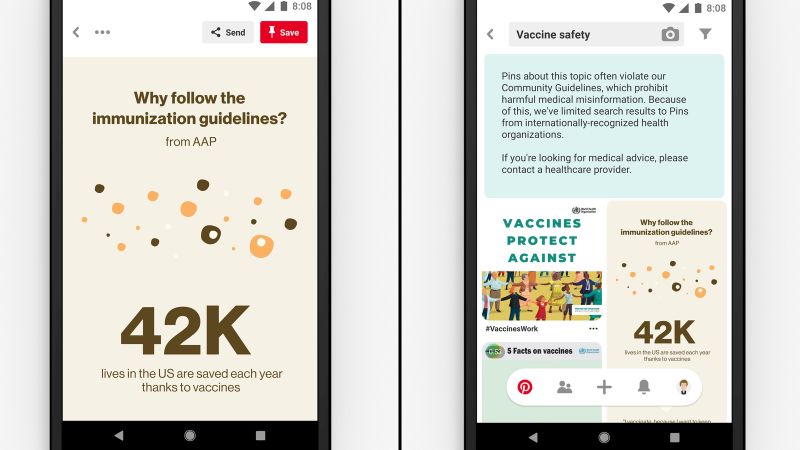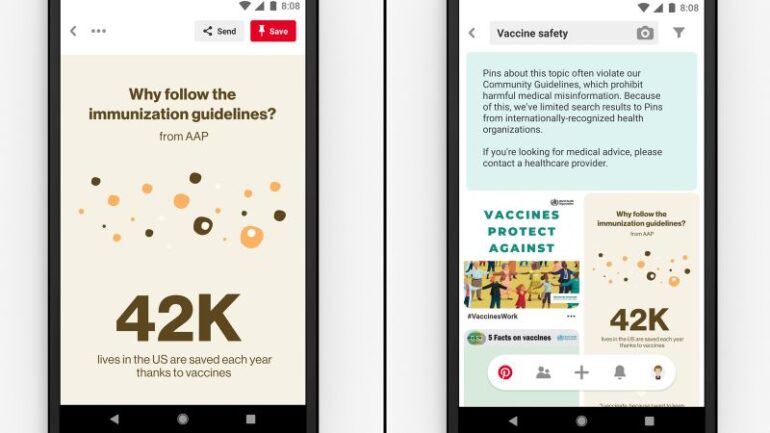Pinterest vaccine safety measles search results reveal a fascinating blend of genuine concern and misinformation. People are clearly searching for information about the measles vaccine, but the results often contain a mix of accurate data and potentially harmful inaccuracies. This exploration delves into the complex interplay between public perception, social media influence, and the crucial role of scientific evidence in addressing vaccine hesitancy.
The search results highlight common anxieties about vaccine safety, often stemming from historical controversies and misinterpretations of scientific data. We’ll explore the types of information circulating on Pinterest, from credible sources to misleading claims, and analyze how this impacts public understanding and acceptance of measles vaccination.
Vaccine Safety Concerns Regarding Measles
Measles, a highly contagious viral illness, has been effectively controlled through vaccination programs worldwide. However, despite overwhelming scientific evidence supporting vaccine safety, concerns persist. These anxieties often stem from misinformation and misunderstandings about the vaccine’s potential risks compared to the dangers of contracting measles. This exploration will delve into the common concerns, their historical context, and the robust scientific consensus regarding measles vaccine safety.Understanding these concerns and the scientific response is crucial for informed decision-making about vaccination.
Common Concerns Regarding Measles Vaccine Safety
Misinformation and fear often fuel anxieties about vaccine safety. Concerns frequently revolve around the perceived link between vaccines and adverse health outcomes, particularly long-term effects. These concerns are often fueled by anecdotal evidence and lack of understanding about the rigorous scientific testing and monitoring that vaccines undergo.
Historical Context of Concerns
Historically, some individuals have expressed concerns about potential side effects of vaccines, including the measles vaccine. One prominent historical example is the now-discredited link between the measles, mumps, and rubella (MMR) vaccine and autism, which was initially proposed in a 1998 publication. This paper, later retracted, sparked considerable controversy and had a significant impact on vaccination rates in some regions.
It’s important to note that the overwhelming scientific consensus, based on extensive research and data analysis, firmly rejects this link.
Scientific Consensus on Measles Vaccine Safety
The scientific consensus is unequivocal: measles vaccines are safe and highly effective in preventing measles. Numerous large-scale studies and clinical trials have consistently demonstrated the vaccine’s safety profile. These studies track the health of millions of vaccinated individuals, demonstrating no significant long-term health risks associated with the vaccine. Independent organizations, such as the Centers for Disease Control and Prevention (CDC) and the World Health Organization (WHO), provide comprehensive information and data confirming the safety and effectiveness of measles vaccines.
Comparing Risks of Measles and Vaccination
Contracting measles poses significant risks, including severe complications like pneumonia, encephalitis (brain inflammation), and death. The potential for serious complications, hospitalization, and long-term health problems is significantly higher with measles infection than with vaccination. Measles can cause long-term disabilities or even fatalities in vulnerable populations. The risk of serious adverse effects from the measles vaccine is extremely low compared to the substantial risks of contracting measles.
I was browsing Pinterest looking for info on vaccine safety regarding measles, and the search results were surprisingly varied. While researching, I stumbled across some interesting stuff about Samsung’s upcoming Galaxy Z Fold 2 5G, which apparently has been shown off on TikTok. samsungs upcoming galaxy z fold 2 5g shows tiktok This got me thinking about the potential for misinformation online, even when looking for seemingly unrelated information like vaccine safety.
Ultimately, my Pinterest search for measles vaccine safety results still needs more credible sources.
Potential Side Effects of the Measles Vaccine
While the measles vaccine is generally safe, some individuals may experience mild side effects. Common side effects include soreness, redness, or swelling at the injection site, fever, and mild rash. These reactions are usually temporary and resolve on their own within a few days. Serious side effects, such as allergic reactions, are rare.
Long-Term Health Implications of Measles Vaccination
Extensive research and long-term follow-up studies have not revealed any evidence of long-term health problems linked to the measles vaccine. The vast majority of individuals who receive the measles vaccine remain healthy and experience no lasting negative effects.
Comparison Table: Measles Vaccine vs. Measles Infection
| Characteristic | Measles Vaccine | Measles Infection |
|---|---|---|
| Short-term Side Effects | Soreness, redness, swelling at injection site, mild fever, mild rash. (Rare: allergic reactions) | Fever, cough, runny nose, rash, potential for pneumonia, encephalitis, other severe complications. |
| Long-term Side Effects | None consistently demonstrated in large-scale studies. | Potential for long-term disabilities, including hearing loss, cognitive impairment, and vision problems. Possibility of death. |
Pinterest Search Results on Measles Vaccine Safety
Pinterest, a visual platform, often becomes a hub for information sharing, including discussions about health topics like vaccine safety. This exploration delves into the common themes and perspectives encountered when searching for information on the measles vaccine’s safety on Pinterest. It examines the reliability and accuracy of the information shared, considering the potential for misinformation.Pinterest search results frequently reflect concerns about potential side effects of the measles vaccine, often highlighting rare instances of adverse events.
Discussions often involve anecdotes, personal stories, and unverified claims. These discussions often lack scientific backing and a comprehensive understanding of the complexities of vaccine safety.
Frequent Themes and Topics
Pinterest search results often center on potential side effects of the measles vaccine, focusing on rare but publicized adverse events. Users frequently share anecdotal evidence and personal stories, often lacking rigorous scientific backing. This approach often leads to an overemphasis on negative aspects and an underrepresentation of the vaccine’s overall safety and effectiveness. Another frequent theme is the comparison of the measles vaccine to other preventive measures, including natural immunity or alternative therapies.
Types of Information Shared or Debated
The types of information commonly shared on Pinterest regarding measles vaccine safety encompass anecdotal evidence, personal experiences, and unverified claims. These often lack the rigor and scientific scrutiny of peer-reviewed studies. Some users may share links to websites or articles presenting alternative viewpoints on vaccine safety, without critically evaluating the scientific validity of these sources. Comparisons with other preventative measures, such as natural immunity, may also be presented.
Perspectives Expressed
Different perspectives on measles vaccine safety are evident in Pinterest search results. Some users express strong concerns about potential side effects, often emphasizing individual experiences and anecdotes. Others highlight the vaccine’s effectiveness and safety record, citing extensive scientific evidence. Still others advocate for alternative approaches to measles prevention, sometimes questioning the necessity of vaccination.
Scientific Accuracy and Reliability
The scientific accuracy and reliability of information found in Pinterest search results on measles vaccine safety are highly variable. Anecdotal evidence and personal accounts are often presented without supporting scientific data. Misinformation, potentially spread through sharing and reposting, can be a significant concern. Users must critically evaluate the sources and information they encounter to avoid misinterpretations and unfounded fears.
Analysis of Perspectives
| Perspective | Frequency in Pinterest Search Results | Examples/Supporting Evidence |
|---|---|---|
| Concerns about potential side effects | High | Anecdotal accounts of adverse events, emphasis on rare cases, lack of context |
| Emphasis on vaccine effectiveness and safety | Moderate | Citation of scientific studies, long-term safety data, and statistics on disease prevention |
| Advocacy for alternative prevention methods | Low to Moderate | Promotion of natural immunity or alternative therapies without scientific backing |
Public Perception and Misinformation
Public perception of the measles vaccine plays a crucial role in its acceptance and uptake. A significant portion of the population, particularly those who distrust established institutions or those who have been exposed to misinformation, may harbor concerns about vaccine safety. This distrust, often amplified by social media platforms, can lead to hesitancy and refusal to vaccinate, potentially endangering both individual health and public health.The spread of misinformation regarding measles vaccine safety has become a serious public health concern.
It undermines the effectiveness of vaccination campaigns and can result in outbreaks of measles, particularly in communities where vaccination rates are low.
Social Media’s Role in Shaping Public Opinion
Social media platforms, such as Pinterest, have become powerful tools for disseminating information, both accurate and inaccurate. Pinterest’s visual nature and focus on inspiration and ideas can make it an attractive platform for sharing potentially misleading information about health topics. Users often share images and articles that support their existing beliefs, contributing to the echo chambers that can solidify misinformation.
Users may also be influenced by perceived authority figures, even if those figures lack credentials or expertise. This dynamic interaction within the social media ecosystem can significantly shape public opinion on vaccine safety.
Influence of Misinformation on Public Perception
Misinformation surrounding measles vaccine safety can lead to a distorted perception of the risks and benefits of vaccination. This can be exacerbated by the spread of anecdotal evidence, emotionally charged stories, and the lack of critical evaluation of sources. Individuals may place more weight on personal experiences or accounts from trusted social networks than on scientific evidence. Misinformation often plays on anxieties and fears, making it particularly persuasive.
I was looking at Pinterest for info on vaccine safety, specifically measles, and the search results were a bit overwhelming. It got me thinking about how important it is to have strong passwords to protect your online accounts, especially when dealing with sensitive health information. Fortunately, I found a great deal on a password manager, easily manage your passwords with up to 56 off nordpass password manager , which will help me keep my digital life organized and secure.
Ultimately, understanding vaccine safety information still needs to be approached carefully, regardless of how much time I spend on managing my passwords.
Comparison of Misinformation Spread Across Platforms, Pinterest vaccine safety measles search results
The spread of misinformation regarding measles vaccine safety varies across different online platforms. Pinterest, with its emphasis on visual content and user-generated boards, might facilitate the sharing of images and infographics promoting misinformation more readily than platforms like Twitter or Facebook, which may have more text-based interactions. However, the actual mechanisms and rates of spread across various platforms are complex and require further investigation.
Strategies to Combat Misinformation
Combating misinformation on Pinterest and other social media platforms requires a multi-pronged approach. It’s crucial to promote media literacy, helping users critically evaluate information sources. Fact-checking initiatives, collaborations between public health organizations and social media platforms, and proactive identification and removal of misinformation are essential components of this approach. Additionally, empowering individuals with accurate, evidence-based information can help them navigate the complex information landscape and make informed decisions about their health.
Common Sources of Misinformation
| Source | Origin | Claims |
|---|---|---|
| Anti-vaccine groups | Often operate online and offline | Link vaccines to autism, other chronic illnesses, and allege conspiracy theories about government agendas. |
| Misinterpreted or misrepresented scientific studies | Often found in blogs or social media posts | Selective reporting of data from studies or misinterpreting the results to support the claim that vaccines are harmful. |
| Inexperienced medical professionals | Often present as “alternative” practitioners | Offer unscientific views on vaccines, often promoting unproven treatments and cures. |
| Unreliable websites | Blogs, websites lacking scientific credibility | Publish misleading or fabricated information about vaccines, often relying on anecdotal evidence or personal stories. |
Scientific Evidence and Public Health Recommendations

Decades of rigorous scientific research unequivocally demonstrate the safety and effectiveness of measles vaccines. This evidence, coupled with the observed dramatic reduction in measles cases worldwide following widespread vaccination campaigns, forms the bedrock of public health recommendations. Understanding this scientific foundation is crucial for countering misinformation and promoting informed decisions about vaccination.The overwhelming scientific consensus is that measles vaccines are remarkably safe and highly effective in preventing measles.
Numerous studies have tracked vaccine recipients over time, examining for any adverse effects. These studies have consistently shown a very low risk of serious side effects.
I’ve been digging into Pinterest searches for “vaccine safety measles,” and it’s fascinating how much misinformation seems to be floating around. It got me thinking about the recent Amazon HQ2 bids process, where cities like Queens, Arlington, Nashville, and Crystal City were vying for the coveted headquarters. This process really highlights the importance of accurate information, especially when it comes to health concerns.
Ultimately, I’m still concerned about the proliferation of false claims surrounding measles vaccines on Pinterest, and how this could impact public health.
Scientific Evidence Supporting Vaccine Safety and Effectiveness
Extensive clinical trials and large-scale epidemiological studies have provided compelling evidence of measles vaccine safety and effectiveness. These studies demonstrate a strong correlation between vaccination rates and a significant decrease in measles cases. For example, the substantial decline in measles cases observed in many countries since the introduction of routine vaccination programs strongly supports the efficacy of the vaccine.
This evidence has been repeatedly reviewed and affirmed by reputable scientific organizations.
Public Health Organization Recommendations
Public health organizations worldwide, including the Centers for Disease Control and Prevention (CDC) in the US and the World Health Organization (WHO), consistently recommend routine measles vaccination for children and adults. These recommendations are based on a comprehensive assessment of scientific evidence and public health benefits. Adherence to these recommendations is crucial for maintaining herd immunity and preventing outbreaks.
Importance of Adhering to Recommendations
Maintaining high vaccination rates is vital for protecting vulnerable populations, including infants too young to be vaccinated, immunocompromised individuals, and those who cannot be vaccinated for medical reasons. The concept of herd immunity, where a large portion of the population is vaccinated, effectively protects those who cannot be vaccinated. When vaccination rates fall, the risk of outbreaks increases, potentially causing severe illness and even death.
Measles is highly contagious, and outbreaks can rapidly spread through communities.
Role of Medical Professionals in Public Education
Medical professionals play a critical role in educating the public about vaccine safety. They can address concerns and provide accurate information, dispelling myths and misconceptions. Open communication and clear explanations about the benefits and safety of vaccines are essential for building public trust and encouraging vaccination.
Summary of Public Health Organization Recommendations
| Organization | Measles Vaccination Recommendation |
|---|---|
| Centers for Disease Control and Prevention (CDC) | Routine measles vaccination for children and adults, especially those in high-risk groups. |
| World Health Organization (WHO) | Routine measles vaccination as a crucial component of immunization programs globally. |
| [Other Relevant Organizations] | [Recommendations from other organizations] |
Note: This table is a sample and should be expanded to include other relevant public health organizations.
Countering Misconceptions with Scientific Data
Misinformation about vaccine safety, including that about the measles vaccine, is often circulated online. Counteracting these claims requires a strong understanding of scientific evidence. For instance, claims about a link between vaccines and autism have been thoroughly debunked by numerous independent studies. Data from these studies consistently show no correlation between measles vaccination and autism. The use of accurate and accessible scientific data is essential in addressing these concerns.
By emphasizing the strong scientific evidence supporting vaccine safety, medical professionals can help to dispel myths and misconceptions.
User Generated Content on Pinterest
Pinterest, a platform known for visual sharing, often becomes a hub for user-generated content related to health and wellness topics, including vaccine safety. This user-generated content can vary widely in terms of accuracy, motivations, and impact on public perception. Understanding the types of content, its tone, and its potential influence on vaccine hesitancy is crucial for promoting informed decision-making.User-generated content on Pinterest regarding measles vaccine safety is diverse and can be categorized based on various factors.
This content encompasses a wide spectrum of perspectives, from enthusiastic endorsements of the vaccine to skeptical views expressing concerns. Analyzing the emotional tone and style of these posts can reveal underlying motivations and anxieties, which can in turn impact the overall reception of the information. Understanding the influence of this content on vaccine hesitancy is essential for public health initiatives.
Types of User-Generated Content
User-generated content on Pinterest regarding measles vaccine safety demonstrates a range of perspectives and often reflects emotional responses. This content frequently employs evocative language, images, and personal anecdotes, which can significantly impact the emotional engagement of the audience.
- Positive testimonials and endorsements: Users often share personal stories highlighting the positive outcomes of measles vaccination in their families or communities. These posts often feature images of healthy children or families, conveying a sense of reassurance and trust. The tone is generally positive, emphasizing the importance of vaccination for individual and community health.
- Skeptical and negative posts: Conversely, some users express skepticism about the safety of the measles vaccine, sharing anecdotal evidence, unverified claims, and misinformation. These posts may use alarming language and images, triggering emotional responses and fear. The tone is often negative, anxious, and distrustful, potentially fueling vaccine hesitancy.
- Misinformation and conspiracy theories: Some posts promote false claims about the measles vaccine’s safety, associating it with unproven health risks. These posts may use graphic imagery and alarming statistics to create a sense of urgency and fear, often referencing conspiracy theories. The tone is often alarming, distrustful, and manipulative.
- Posts promoting alternative medicine: Some users advocate for alternative or unproven treatments for measles or suggest that vaccination is unnecessary. These posts often present information that contradicts scientific consensus and promote a sense of autonomy and personal choice. The tone may range from encouraging to defensive, often promoting self-reliance.
Emotional Impact of User-Generated Content
The emotional impact of user-generated content on Pinterest can be profound. Positive posts, while well-intentioned, can be seen as overly simplistic. Skeptical or negative posts, especially those fueled by misinformation, can evoke strong emotions such as fear, anxiety, and distrust, which can lead to vaccine hesitancy. The use of graphic imagery and personal anecdotes can heighten the emotional impact of the content, potentially making it more memorable and influential.
Influence on Vaccine Hesitancy
User-generated content on Pinterest, especially that promoting skepticism or misinformation, can significantly influence vaccine hesitancy. The emotional tone and persuasive language used in these posts can resonate with individuals who are already predisposed to doubt vaccination recommendations. The availability of such content in a visually engaging format, like Pinterest, can further reinforce existing beliefs and contribute to the spread of misinformation.
Examples of User-Generated Content
| Category | Example | Tone |
|---|---|---|
| Positive testimonials | “My daughter got the measles vaccine, and she’s perfectly healthy!” (Image of a smiling child) | Positive, reassuring |
| Skeptical posts | “Measles vaccine linked to autism – don’t let them inject your child!” (Image of a crying child with a syringe) | Negative, alarming |
| Misinformation | “The measles vaccine contains mercury – avoid at all costs!” (Image of a jar with a red liquid) | Negative, alarming, manipulative |
| Alternative medicine | “Natural remedies are the best way to prevent measles – avoid vaccines!” (Image of herbal remedies) | Encouraging, self-reliant |
Critical Thinking in Evaluating User-Generated Content
Evaluating user-generated content on vaccine safety requires critical thinking skills. Users should not solely rely on the information presented, but rather question its source, the validity of claims, and the potential biases. It is essential to consult reliable sources of information, such as public health organizations and medical professionals, to ensure accurate and evidence-based understanding.
Closure: Pinterest Vaccine Safety Measles Search Results

Ultimately, the Pinterest vaccine safety measles search results underscore the crucial need for accurate information and critical thinking. Combating misinformation requires a multi-faceted approach, empowering individuals with the tools to discern credible sources and fostering open communication between medical professionals and the public. This discussion emphasizes the vital role of public health organizations in providing evidence-based guidance, alongside the important role of medical professionals in dispelling myths and promoting informed decision-making about vaccinations.




